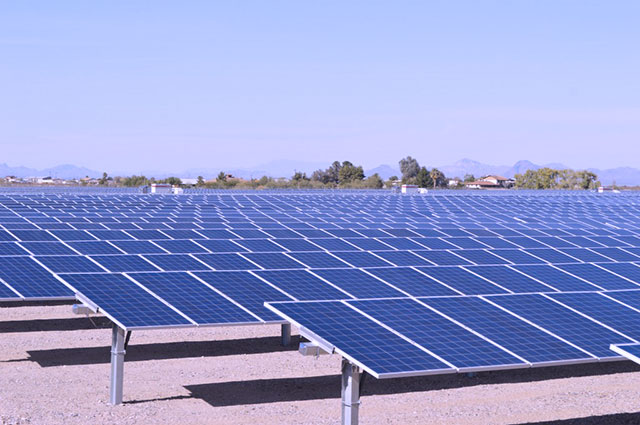The ongoing surge in renewable energy development, particularly solar, in India has apparently necessitated a system of auctioning in the sector, too.
According to Mercom Capital Group, a clean energy communications and research firm, India stands to install 2 gigawatts of solar projects in the calendar year 2015. It is a revised figure reported in Mercom’s quarterly update on the Indian solar market.
The revision of the figure is largely attributed to the positive developments in Tamil Nadu, Business Standard says in a report.
The growth also means the Ministry of New and Renewable Energy, is very close to announcing Phase II Batch 2 programme of solar energy projects.
“The Indian solar industry is looking for a streamlined auction process at regular intervals to better plan investments and manufacturing capacity,” Raj Prabhu, the CEO and Co-Founder of Mercom Capital Group said in a statement.
Several factors have helped the growth of solar projects in India. The Solar Energy Corporation of India, originally formed to implement Jawaharlal Nehru National Solar Mission projects, is now working to establish and own solar projects of combined capacity of 2 gigawatts.
It recently surpassed capacity installed under Gujarat’s solar policy.
The projects ranging from 250 megawatts to 500 megawatts are to be developed after they are auctioned as EPC contracts.
That Reserve Bank of India has included renewable energy as a priority lending sector is expected to support growth of the sector in the long run. At present the central bank has set a cap of Rs15 crore ($2.5 million) for utility-scale developers and Rs10 lakh ($16,393) for residential borrowers.
Mercom has stated that the government will need to increase the cap on lending to utility-scale developers to bring about greater deployment in the short term. At present the majority of solar developers in India are in the utility segment.
“Increasing the cap will greatly accelerate the implementation and execution of solar installations in the country,” Prabhu said.
Among the other likely changes is a revision of National Tariff Policy to include promoting renewable generation as a policy objective. Interstate transmission charges for renewable energy sources could be abolished. And, more significantly, the ministry of power has proposed to increase the solar Renewable Purchase Obligation to eight percent by 2019. The current goal is only three percent.
Mercom’s Prabhu, however, has cautioned that solar project deployment would be unviable in the absence of strict enforcement of the RPO irrespective of percentage requirement.
Ajith Kumar S
editor@greentechlead.com

